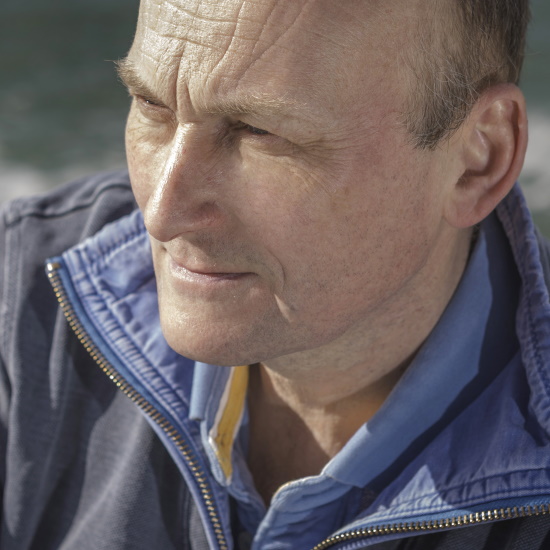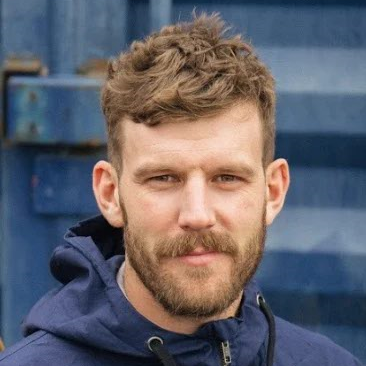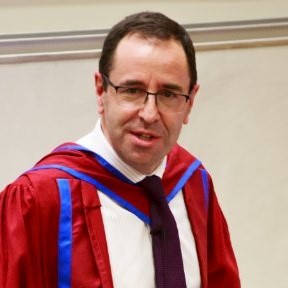Sustainable fashion: transdisciplinary approaches to innovation

This event explored the role of science in reducing the environmental impact of the fashion industry.
This event outlined the fashion sector's largest sustainability challenges and identified areas where transdisciplinary approaches to innovation are required to drive progress.
The meeting brought together key stakeholders from across industry, academia, policy and finance to explore themes such as design innovation, social science, material science, manufacturing efficiency and end-of-life.
Conference report
About the conference series
This scientific meeting is part of the Royal Society’s Transforming our Future conference series. These meetings are unique, high-level events that address the scientific and technical challenges of the next decade. Each conference features cutting edge science from industry and academia and brings together leading experts from the scientific community, including regulatory, charity and funding bodies.
Watch the video recording
Click watch on YouTube to view the full video playlist.
Organisers
Schedule
| 12:45-12:50 |
Welcome address
Dr Alicia Greated, Chief Executive Officer, KTN
Dr Alicia Greated, Chief Executive Officer, KTNAlicia Greated is the Chief Executive Officer for KTN. Previously Alicia was Global Director, Research Engagement at Heriot-Watt University and prior to that, led delivery of the Newton Fund (a £735million global research and innovation fund) on behalf of BEIS, UK government. She was also founder and Director of Research Council UK (RCUK) India at the British High Commission in Delhi, and Director RCUK China at the British Embassy in Beijing. She has worked as acting Director of Research for the Arts and Humanities Research Council (AHRC) and was Head of Engineering at the Engineering and Physical Sciences Research Council (EPSRC). Alicia is a Fellow of the Institution of Engineering and Technology, Fellow of the RSA and member of the UK Government’s Jet Zero Council. She is also member of a number of advisory bodies including the Royal Society’s Science, Industry and Translation Committee and the Scottish Funding Council’s Research and Knowledge Exchange Committee. |
|---|---|
| 12:50-13:10 |
Keynote talk - Sustainable fashion: the challenges ahead for the sector
The fashion and textiles industry is a major part of the global economy. In Europe, clothing is the eighth largest sector in terms of household spending, with over a million tonnes of clothing purchased annually in the UK alone. However, the sector is ranked fourth in terms of its impacts on the environment, with negative consequences at all stages of the life cycle including: the production of both natural and synthetic fibres, creation of garments, dying, the use phase, laundering and final disposal. Tackling the issue will require us to design more durable clothing, and to make re-use and repair more feasible. Prioritising interventions will require a systems perspective and implementation will necessitate collaboration between environmental, social and material scientists, designers, retailers, customers, and those involved in re-use and recycling. It will also require legislation, education, and behavioural change to catalyse action. 
Professor Richard Thompson OBE FRSUniversity of Plymouth 
Professor Richard Thompson OBE FRSUniversity of Plymouth Richard is a Professor of Marine Biology and Director of the University of Plymouth, Marine Institute. He is a world expert on plastic pollution. In 2004, he published the first paper describing the accumulation of microscopic fragments of plastic in the environment, naming them 'microplastics'. He and his team have been at the forefront of microplastics research showing their global distribution, the potential for transfer from the gut to the circulatory system, and their role in the transport of chemicals. This pioneering work was pivotal in recognition of microplastic contamination in policy, such as Marine Strategy Framework Directive. |
Chair

Professor Jane Harris
University of the Arts London, Fashion, Textiles & Technology Institute

Professor Jane Harris
University of the Arts London, Fashion, Textiles & Technology Institute
Jane is Professor of Digital Design and Innovation, Director of the Fashion, Textiles and Technology Institute (FTTI) at University of the Arts London. She is also Director of the Business of Fashion, Textiles and Technology Creative R&D Partnership, as part of an £80million UK wide AHRC Creative Industries Cluster Programme (CICP), and Director of Research and Innovation (Stratford), which includes leadership of R&D initiatives aligned to the new UAL campus (Sept 2023), at East Bank, on the Queen Elizabeth Park, London.
She is a Co-I on an Engineering and Physical Sciences Research Council (EPSRC) Digital Economy Network Plus Award. Her research practice combines award winning expertise in textile design and creative computing, with a track record of leading collaborative XR, design research and R&D.
With board-level representation in sector-leading organisations such as the V&A, Scottish Arts Council, and advisory roles for the Royal Shakespeare Company, Arts Council England, Crafts Council and Arts Foundation, Jane is advisor to councils across UK Research and Innovation (UKRI), the EU Commission for ICT and various international research councils.
| 13:10-13:15 |
Introduction to the session
|
|---|---|
| 13:15-13:35 |
Challenging perceptions of fast and slow fashion: 1960s paper dresses and the concept of disposable garments
In this talk, Liz and Hannah will explore how historic models of fashion and textile manufacture can inspire new sustainable models for both manufacture and consumption. Using the paper dress trend of the 1960s as a starting point, they discuss how garments with purposeful short-term life-cycles could offer new sustainable opportunities - matching a garment's use phase to the longevity of the material it is made from. This talk will use a material culture approach to explore original 1960s paper garments, alongside a critical analysis of the sustainability of their manufacture and disposal. Liz and Hannah argue that the current paradigm of slow fashion as the only antidote to fast fashion must be challenged. Instead, the fashion and textile sector must consider a range of solutions to the environmental burden of fast fashion that are human-centred and sympathetic to all consumer demographics and needs. 
Dr Liz TregenzaLondon College of Fashion 
Dr Liz TregenzaLondon College of Fashion Liz is a Lecturer in Cultural and Historical Studies at London College of Fashion. She recently completed a Business of Fashion Textiles and Technology Post-doctoral Research Fellowship at the Victoria and Albert Museum. This fellowship focused on the transformative opportunities digital technologies offer the fashion retail and cultural sectors. She has also worked as a museum curator and runs an online vintage business. In February 2023, her book Wholesale Couture: London and Beyond, 1930-1970 was released with Bloomsbury. 
Hannah Auerbach GeorgeVictoria and Albert Museum 
Hannah Auerbach GeorgeVictoria and Albert Museum Hannah Auerbach George is the Business of Fashion Textiles and Technology Research Fellow at the Victoria and Albert Museum. Originally trained in Woven Textile Design at the Royal College of Arts, Hannah’s career within textiles has spanned industrial production, historical textiles, design, consultancy, research and education. Her research focuses on mining forgotten technologies to inform the development of sustainable future materials. Hannah applies her diverse experience to every project she undertakes resulting in a distinctive approach routed in technique and process. |
| 13:35-13:55 |
Environmentally driven design: transdisciplinary approaches to circular and sustainable innovation
As Chair of Circular Design and Innovation and Director of UAL's Centre for Circular Design, Kate's research focus over the past decade has been in the alignment of environmental science and circular design principles for a positive fashion and textiles industry. Her approach is based on the early alignment of design and science, technology, engineering and medicine (STEM) disciplines to work on complex system issues and new methodologies. Better use of data, stakeholder engagement and interdisciplinarity are essential to address the scale of the challenges the industry is facing. However, the global fashion and textiles industry is complex and there are few established methods for such integration at scale and pace. This talk will present previous and ongoing research that integrates the particular characteristics of fashion and textile design, material and environmental sciences. Examples demonstrate new transdisciplinary approaches to R&D with UK-based small-to-medium sized enterprises (SMEs) focussed on circular and sustainable technology innovation where creativity is central to progress. 
Professor Kate GoldsworthyUniversity of the Arts London, Fashion, Textiles & Technology Institute 
Professor Kate GoldsworthyUniversity of the Arts London, Fashion, Textiles & Technology Institute Professor Kate Goldsworthy is Chair of Circular Design & Innovation and Co-Director of the Centre for Circular Design, based at Chelsea College of Arts. She is also Deputy Director of the Business of Fashion, Textiles and Technology partnership (BFTT, 2018-23), funded by the UK Industrial Strategy (£5.5m) and managed by the AHRC. Her core research interests are designing for sustainability, the circular economy and material innovation within textile and fashion contexts. Her methods are transdisciplinary and practice-led, with a focus on fibre-to-fibre recovery and new finishing technologies. This includes more sustainable production systems for the textile industry, and pioneering design solutions for the recycling and recovery of both synthetic polymers and bio-based materials. She is a member of the EPSRC Peer Review College and was previously a member of their EC Forum in Manufacturing Research (2016-2020). She also advises on policy groups and industry boards, including a long-standing relationship with Worn Again Technologies, where she currently sits on their Circular Advisory Panel. Her creative work has been exhibited and collected internationally, and commissions include The Science Museum, The V&A and the Museum of Fine Arts Boston. |
| 13:55-14:05 |
Q&A session

Dr Liz TregenzaLondon College of Fashion 
Dr Liz TregenzaLondon College of Fashion Liz is a Lecturer in Cultural and Historical Studies at London College of Fashion. She recently completed a Business of Fashion Textiles and Technology Post-doctoral Research Fellowship at the Victoria and Albert Museum. This fellowship focused on the transformative opportunities digital technologies offer the fashion retail and cultural sectors. She has also worked as a museum curator and runs an online vintage business. In February 2023, her book Wholesale Couture: London and Beyond, 1930-1970 was released with Bloomsbury. 
Hannah Auerbach GeorgeVictoria and Albert Museum 
Hannah Auerbach GeorgeVictoria and Albert Museum Hannah Auerbach George is the Business of Fashion Textiles and Technology Research Fellow at the Victoria and Albert Museum. Originally trained in Woven Textile Design at the Royal College of Arts, Hannah’s career within textiles has spanned industrial production, historical textiles, design, consultancy, research and education. Her research focuses on mining forgotten technologies to inform the development of sustainable future materials. Hannah applies her diverse experience to every project she undertakes resulting in a distinctive approach routed in technique and process. 
Professor Kate GoldsworthyUniversity of the Arts London, Fashion, Textiles & Technology Institute 
Professor Kate GoldsworthyUniversity of the Arts London, Fashion, Textiles & Technology Institute Professor Kate Goldsworthy is Chair of Circular Design & Innovation and Co-Director of the Centre for Circular Design, based at Chelsea College of Arts. She is also Deputy Director of the Business of Fashion, Textiles and Technology partnership (BFTT, 2018-23), funded by the UK Industrial Strategy (£5.5m) and managed by the AHRC. Her core research interests are designing for sustainability, the circular economy and material innovation within textile and fashion contexts. Her methods are transdisciplinary and practice-led, with a focus on fibre-to-fibre recovery and new finishing technologies. This includes more sustainable production systems for the textile industry, and pioneering design solutions for the recycling and recovery of both synthetic polymers and bio-based materials. She is a member of the EPSRC Peer Review College and was previously a member of their EC Forum in Manufacturing Research (2016-2020). She also advises on policy groups and industry boards, including a long-standing relationship with Worn Again Technologies, where she currently sits on their Circular Advisory Panel. Her creative work has been exhibited and collected internationally, and commissions include The Science Museum, The V&A and the Museum of Fine Arts Boston. |
Chair

Andrew Yip
PANGAIA

Andrew Yip
PANGAIA
Andrew Yip leads the materials and process innovation function within the PANGAIA R&D team, focusing on sustainable technologies in the areas of biopolymers, carbon-capture and utilization, green chemistry, waterless processing, and regenerative agriculture/agroforestry. He received his MS degree in Materials Science from the University of California Santa Barbara and BS in Physics from Johns Hopkins University. Since leaving school he has held various material development & commercialization roles at adidas and The North Face.
Andrew has contributed to a number of projects & patents such as the commercial launch of the world’s first fully-recyclable performance running shoe (adidas Made To Be Remade), the early development of the lowest carbon footprint performance running shoe (adidas x allbirds), one of the first engineered jacquard woven jackets in the outdoor industry (The North Face FuseForm), and numerous products that have been used in the harshest environments on Earth (The North Face Summit and Steep Series). In his spare time he likes to go rock climbing, hiking with his family, and learning new things.
| 14:35-14:40 |
Introduction to the session
|
|---|---|
| 14:40-14:50 |
Case study: Virustatic
Virustatic technologies harness innovations of the natural world whilst reducing the usage of harmful and polluting chemical compounds. Their patented Viruferrin® compound is a protein-based antimicrobial, antibacterial, antiviral and antifungal textile coating. Viruferrin® has been developed as an ecologically friendly alternative to conventional textile treatments. 
Dr Joseph HoughtonVirustatic, University of Leeds, University of the Arts London, Fashion, Textiles & Technology Institute 
Dr Joseph HoughtonVirustatic, University of Leeds, University of the Arts London, Fashion, Textiles & Technology Institute Joseph holds a doctorate and MChem degree in Green and Sustainable Chemistry from the Green Chemical Centre of Excellence, University of York, is a Member of the Royal Society of Chemistry (MRSC) and has been recognised for his work in the area of sustainability and the environment by being awarded a Chartered Environmentalist (CEnv) accreditation. His historical research aims to reduce the impact of industrial waste biomass through valorisation routes in hopes of creating biorefinery systems for a more sustainable future. Working in collaboration with industry, economic and commercial feasibility is embedded across the entirety of Joseph's research. He has worked in the area of green chemistry for the last ten years and has devoted his research to improving the sustainability of the material and textile world over the last four years with projects involving the Leeds Institute of Textile and Colour (LITAC) and the Fashion and Textile Technology Institute (FTTI). Joseph is currently the Senior R&D Project Manager at Virustatic, where he supports the company in the innovation of textile coatings to replace the use of toxic metal-based chemicals for the antimicrobial treatment of fabrics and textiles. |
| 14:50-15:00 |
Case study: Hide Biotech
Hide Biotech Ltd is building a sustainable biomaterial from extracted marine collagen. While replicating the authentic feel of leather, the biomaterial significantly reduces water consumption, carbon footprint, land use and waste generated in the manufacturing process. Their supply chain is 100% traceable. 
Dr Yudi DingHide Biotech 
Dr Yudi DingHide Biotech Dr Yudi Ding is the co-founder and CEO of Hide Biotech, a Cambridge-incubated startup transforming waste-derived collagen into novel fashion materials and beyond. At Cambridge, he studied and researched organic and protein chemistry, which is key to Hide's protein-based technology. Prior to his PhD, he obtained his MA degree in Chemical Engineering at the École Polytechnique. He has also worked for Johnson & Johnson in manufacturing quality assurance and the advanced research unit at L’Oréal developing new anti-ageing molecules. He enjoys design, cooking, calligraphy and everything that involves creativity and precision. |
| 15:00-15:10 |
Case study: Project Plan B
Project Plan B is a B2B clothing company that designs, manufactures and recycles clothing at the end of life to provide circularity in garment development. They have successfully piloted technology that can mechanically recycle polyester back to rPET: the building blocks of all polyester clothing. 
Tim CrossProject Plan B 
Tim CrossProject Plan B Tim Cross, Director of Project Plan B, a thermomechanical textile polyester recycler in the UK, has 25 years of experience in garment manufacturing. In the last five years, he’s been focused on supporting fibre-to-fibre recycling systems specifically for post-consume textiles and embedding circular design and practice with brands and retailers. |
| 15:10-15:20 |
Case study: DyeRecycle
DyeRecycle, a spinout from Imperial College London, has developed a circular chemical technology to decolour textile waste and reuse old dyes. Their technology selectively extracts dyes from waste fibres, which can then be transferred onto new fabric. The decoloured white fibre remaining provides high-value uniform input for mechanical and chemical fibre-to-fibre recyclers. 
Dr Aida RafatDyeRecycle 
Dr Aida RafatDyeRecycle Dr Aida Rafat is a Royal Academy of Engineering Enterprise Fellow and the CEO and founder of DyeRecycle. Aida worked as chemical engineer in the oil & gas sector before she joined her PhD at Imperial College London to focus on building future sustainable chemical technologies, focusing primarily on waste valorisation and development of circular chemical processes. Aida was the lead inventor of DyeRecycle technology and currently leading its commercialisation. DyeRecycle is the first technology to tackle chemical and fibre circularity providing recycled vibrant colours using textile waste while also enabling efficient fibre-to-fibre recycling by decolouring textile waste. |
| 15:25-16:00 |
Q&A and discussion session

Dr Yudi DingHide Biotech 
Dr Yudi DingHide Biotech Dr Yudi Ding is the co-founder and CEO of Hide Biotech, a Cambridge-incubated startup transforming waste-derived collagen into novel fashion materials and beyond. At Cambridge, he studied and researched organic and protein chemistry, which is key to Hide's protein-based technology. Prior to his PhD, he obtained his MA degree in Chemical Engineering at the École Polytechnique. He has also worked for Johnson & Johnson in manufacturing quality assurance and the advanced research unit at L’Oréal developing new anti-ageing molecules. He enjoys design, cooking, calligraphy and everything that involves creativity and precision. 
Dr Joseph HoughtonVirustatic, University of Leeds, University of the Arts London, Fashion, Textiles & Technology Institute 
Dr Joseph HoughtonVirustatic, University of Leeds, University of the Arts London, Fashion, Textiles & Technology Institute Joseph holds a doctorate and MChem degree in Green and Sustainable Chemistry from the Green Chemical Centre of Excellence, University of York, is a Member of the Royal Society of Chemistry (MRSC) and has been recognised for his work in the area of sustainability and the environment by being awarded a Chartered Environmentalist (CEnv) accreditation. His historical research aims to reduce the impact of industrial waste biomass through valorisation routes in hopes of creating biorefinery systems for a more sustainable future. Working in collaboration with industry, economic and commercial feasibility is embedded across the entirety of Joseph's research. He has worked in the area of green chemistry for the last ten years and has devoted his research to improving the sustainability of the material and textile world over the last four years with projects involving the Leeds Institute of Textile and Colour (LITAC) and the Fashion and Textile Technology Institute (FTTI). Joseph is currently the Senior R&D Project Manager at Virustatic, where he supports the company in the innovation of textile coatings to replace the use of toxic metal-based chemicals for the antimicrobial treatment of fabrics and textiles. 
Dr Aida RafatDyeRecycle 
Dr Aida RafatDyeRecycle Dr Aida Rafat is a Royal Academy of Engineering Enterprise Fellow and the CEO and founder of DyeRecycle. Aida worked as chemical engineer in the oil & gas sector before she joined her PhD at Imperial College London to focus on building future sustainable chemical technologies, focusing primarily on waste valorisation and development of circular chemical processes. Aida was the lead inventor of DyeRecycle technology and currently leading its commercialisation. DyeRecycle is the first technology to tackle chemical and fibre circularity providing recycled vibrant colours using textile waste while also enabling efficient fibre-to-fibre recycling by decolouring textile waste. 
Tim CrossProject Plan B 
Tim CrossProject Plan B Tim Cross, Director of Project Plan B, a thermomechanical textile polyester recycler in the UK, has 25 years of experience in garment manufacturing. In the last five years, he’s been focused on supporting fibre-to-fibre recycling systems specifically for post-consume textiles and embedding circular design and practice with brands and retailers. |
Chair

Professor Jane Harris
University of the Arts London, Fashion, Textiles & Technology Institute

Professor Jane Harris
University of the Arts London, Fashion, Textiles & Technology Institute
Jane is Professor of Digital Design and Innovation, Director of the Fashion, Textiles and Technology Institute (FTTI) at University of the Arts London. She is also Director of the Business of Fashion, Textiles and Technology Creative R&D Partnership, as part of an £80million UK wide AHRC Creative Industries Cluster Programme (CICP), and Director of Research and Innovation (Stratford), which includes leadership of R&D initiatives aligned to the new UAL campus (Sept 2023), at East Bank, on the Queen Elizabeth Park, London.
She is a Co-I on an Engineering and Physical Sciences Research Council (EPSRC) Digital Economy Network Plus Award. Her research practice combines award winning expertise in textile design and creative computing, with a track record of leading collaborative XR, design research and R&D.
With board-level representation in sector-leading organisations such as the V&A, Scottish Arts Council, and advisory roles for the Royal Shakespeare Company, Arts Council England, Crafts Council and Arts Foundation, Jane is advisor to councils across UK Research and Innovation (UKRI), the EU Commission for ICT and various international research councils.
| 16:20-17:20 |
Guided discussion and audience Q&A
This session will examine the broader policy and economic challenges around making the fashion industry more sustainable. Panellists will explore themes such as balancing the longevity of fabrics against the culture of consumption, future research priorities for the sector, and how to de-silo disciplines and sectors relevant to the industry. 
Lucy HopeVirustatic 
Lucy HopeVirustatic Lucy Hope is the Development Director at Virustatic. Virustatic has developed a novel, bioactive textile treatment that is naturally antimicrobial. The patented technology was first used in the market on the globally successful Virustatic SHIELD® product which is a breakthrough in viral filtration technology. Lucy joined Virustatic when it was a disruptive innovation start-up and has helped steer the company into becoming a purpose-led award-winning business. In 2022, Virustatic won the MediWales Innovation Award in the Industry Judges category and its Virustatic SHIELD® product was acquisitioned by the Science Museum Group for the Science and Industry Museum Trust’s COVID-19 archive. Lucy is a Cambridge Institute for Sustainability Leadership (CISL) alumna and works closely with an interdisciplinary team of green chemists, microbiologists and material scientists on innovation projects to further develop Virustatic’s sustainable antimicrobial coatings. 
Sarah GrayWRAP 
Sarah GrayWRAP Sarah is a Lead Analyst in WRAP's Insights and Innovation team. She has worked as a research analyst for WRAP since 2005, except for a two-year stint at the Open University. During this time, she has managed evaluation and business behavioural research projects. Since 2015 she has focussed primarily on researching the textiles industry; leading policy research for Defra's Waste Prevention team as well as the measurement of the voluntary agreement, Textiles 2030. 
Mart Drake-KnightTeemill 
Mart Drake-KnightTeemill Mart is an engineer and co-founder at Teemill, a company that built and now shares access to a working circular supply chain for printed products. At the Teemill campus on the Isle of Wight, the team create technology to enable items to be produced to order in real-time, from organic materials using renewable energy, all designed to come back and be remade when worn out. Instead of creating waste, this enables new products to be made from it. This technology is available as a cloud based solution via the Teemill.com platform. Teemill enables startups, businesses and charities to co-create the future of fashion. Today the team are working on sharing circular production systems with other businesses. 
Professor James BusfieldQueen Mary University of London 
Professor James BusfieldQueen Mary University of London James has been the Head of the Soft Matter Group at Queen Mary University of London since 1994. His group examine the physical behaviour by experiment and modelling techniques of soft matter such as elastomers and rubber materials. Properties of interest include sensing, actuation, abrasion, friction, fracture, fatigue, viscoelastic behaviour, self-healing, recycling, ageing and reinforcement. His research group is currently the largest such group in the UK with a team of 14 postdoctoral researchers and PhD students. James was made a Fellow of the Royal Academy of Engineering in 2020 and a National Teaching Fellow in 2009. James has been in a leadership role of the IOM3 Elastomer Group for 25 years, with whom he has organised more than 80 discussion meetings and conferences of interest to the rubber community. He was the Chairman of the International Rubber Conference in 2019 and RubberCon in 2014 and 2023. |
|---|
| 17:20-17:30 |
Closing remarks from the organisers

Andrew YipPANGAIA 
Andrew YipPANGAIA Andrew Yip leads the materials and process innovation function within the PANGAIA R&D team, focusing on sustainable technologies in the areas of biopolymers, carbon-capture and utilization, green chemistry, waterless processing, and regenerative agriculture/agroforestry. He received his MS degree in Materials Science from the University of California Santa Barbara and BS in Physics from Johns Hopkins University. Since leaving school he has held various material development & commercialization roles at adidas and The North Face. Andrew has contributed to a number of projects & patents such as the commercial launch of the world’s first fully-recyclable performance running shoe (adidas Made To Be Remade), the early development of the lowest carbon footprint performance running shoe (adidas x allbirds), one of the first engineered jacquard woven jackets in the outdoor industry (The North Face FuseForm), and numerous products that have been used in the harshest environments on Earth (The North Face Summit and Steep Series). In his spare time he likes to go rock climbing, hiking with his family, and learning new things. 
Professor Jane HarrisUniversity of the Arts London, Fashion, Textiles & Technology Institute 
Professor Jane HarrisUniversity of the Arts London, Fashion, Textiles & Technology Institute Jane is Professor of Digital Design and Innovation, Director of the Fashion, Textiles and Technology Institute (FTTI) at University of the Arts London. She is also Director of the Business of Fashion, Textiles and Technology Creative R&D Partnership, as part of an £80million UK wide AHRC Creative Industries Cluster Programme (CICP), and Director of Research and Innovation (Stratford), which includes leadership of R&D initiatives aligned to the new UAL campus (Sept 2023), at East Bank, on the Queen Elizabeth Park, London. She is a Co-I on an Engineering and Physical Sciences Research Council (EPSRC) Digital Economy Network Plus Award. Her research practice combines award winning expertise in textile design and creative computing, with a track record of leading collaborative XR, design research and R&D. With board-level representation in sector-leading organisations such as the V&A, Scottish Arts Council, and advisory roles for the Royal Shakespeare Company, Arts Council England, Crafts Council and Arts Foundation, Jane is advisor to councils across UK Research and Innovation (UKRI), the EU Commission for ICT and various international research councils. 
Professor Richard Thompson OBE FRSUniversity of Plymouth 
Professor Richard Thompson OBE FRSUniversity of Plymouth Richard is a Professor of Marine Biology and Director of the University of Plymouth, Marine Institute. He is a world expert on plastic pollution. In 2004, he published the first paper describing the accumulation of microscopic fragments of plastic in the environment, naming them 'microplastics'. He and his team have been at the forefront of microplastics research showing their global distribution, the potential for transfer from the gut to the circulatory system, and their role in the transport of chemicals. This pioneering work was pivotal in recognition of microplastic contamination in policy, such as Marine Strategy Framework Directive. |
|---|
